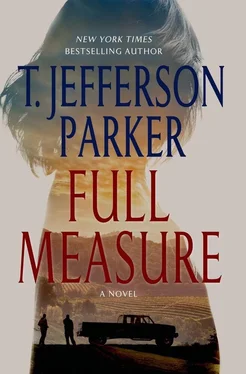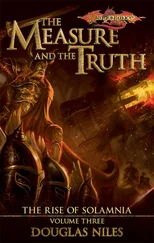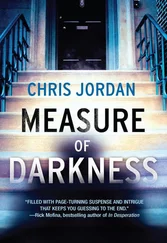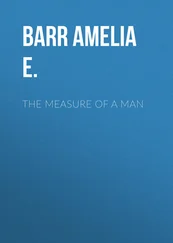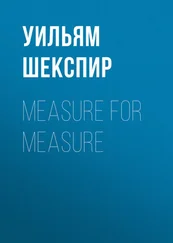“How come you didn’t say anything?”
“I just did, Pat.”
“This happened the day after I got home?”
“Yeah, that day. I was thinking about you the whole time I was driving. And the next thing I know there’s a gun in my face. I haven’t told anybody but you.”
“You didn’t report it?”
“You know me and cops.”
“What are you going to do, Ted?”
“I don’t know what to do. I got robbed, so there’s supposed to be justice. On the other hand, I didn’t get shot and I’m only out some tip money. What do you think I should do?”
Patrick dug out a ruined valve as he thought. “Tough call. I’d go back to the cops. Report it. They’ll question him. Maybe he’s had other complaints.”
“Then I go to court and a bunch of people stare at me? And the judge dismisses the case for lack of evidence? And don’t forget, I’m the guy who got expelled for making fun of the mayor on the Web, so they all would think I’m a whack job.”
“That wouldn’t properly figure in, I don’t think. But this wouldn’t go to a trial. No witnesses except his buddies, and you know what they’ll say. But you don’t have to press charges to file a complaint, I don’t think. You just have to let the law put this guy on notice.”
“What if he robs me again?”
Patrick emptied a shovelful of good Fallbrook decomposed granite around the valve. “Then that’s a whole different story. If we’re out and about and you see him, point him out.”
“Sir, yes sir.”
“Stop that, Ted.”
“Okay. Should I get a gun?”
“No. Then things just escalate.”
“Would you say that to anyone, or just to me?”
“To anyone. Speaking for myself, I can’t tell you how good it was to check in my weapons in at the armory. I like being able to walk around without guns. It’s a privilege.”
They worked silently for a few minutes and Patrick wondered what would be the right behavior for Ted, given the young Mexican man, the gun, the money, the fear and anger. He’d seen that anger spike. A gun for Ted didn’t seem like the right thing. It struck Patrick that in many ways civilian life was more difficult than combat. In Fallbrook, things were not clearly divided into us or them, friend or enemy, kill or be killed. In Sangin, the things he had done as a fighting man were simple and clear, bloody though they sometimes were. Here, things were complex.
They replaced the burned valve and walked to the truck for water. Patrick saw his father down in a swale two hundred meters away, painting a tree trunk with the sprayer. Something about it was amusing and sad at the same time: an aging man in a burnt grove, painting tree trunks white. White for Archie; black for Bostic. “Anyway,” he said. “My mind wanders to Iris Cash a lot.”
“She’s very attractive,” said Ted.
“Yeah. And she’s a fighter. She thinks her stories are weapons. But for good, you know, to help people. She’s trying to get lighted crosswalks downtown, even though her own city council said no.”
Ted glugged down some water and wiped his face with the back of his hand. “I heard about that. Evelyn Anders is behind it.”
Patrick cut his brother a sharp look. “Don’t.”
“I won’t. I’m not. I’ve got my orders.” Ted nodded and pursed his lips but Patrick could tell that he wasn’t going to be able to silence himself. “You know, Pat — Evelyn Anders is Mom’s and Dad’s financial advisor. Isn’t it weird that with her, our parents have lost so much money?”
“Everybody has, Ted. It’s a bad recession. Not everything is personal. Not everything is a conspiracy. Not everything can be blamed on a small-town mayor.”
“Government is the problem, Pat. I’m sure of it.”
“Work, Ted. Work.”
At cocktails Patrick stood on the Norris patio and watched the sun setting over the distant hills. He was tired from the grove work but pleased with their progress. He thought about the fishing boat he’d seen for sale on the Web last night. It was an older but very neat seventeen-foot Mako Pro Skiff, set up well for fly casters, trailered and allegedly pampered. Thirteen grand.
Ted sat shoeless in a rocking chair, rubbing his foot through a blackened sock, a large tumbler of iced tea sweating on the deck beside him. He had brought a computer out to the porch to watch the San Diego news. “I’ve decided to drive the taxi on weekends and some evenings,” he said. “It pays and I need the money.”
Archie and Caroline both looked from the monitor to Ted, and the swinging love seat they shared swayed to a gradual stop. “If you have the energy for two jobs, like Pat does, then more power to you,” said Archie. “I think all of you should know that I’ll be talking to the farm bankers down in Escondido tomorrow. I’m hoping we can get a loan to order replacement trees.”
“It’s like a government conspiracy to wreck our family,” said Ted.
“In what way?” asked Archie. “I’m just talking to the bank, Ted.”
“But it’s funny how she bailed them out but not us.”
“She?” asked Caroline.
“The nanny state, Mom. Bailing out the banks.”
“Look,” said Archie. “I don’t love the government either, son. But leave the whining back in the bunkhouse before work tomorrow. And wear some boots with better support.”
“Do you still have the good orthotics?” asked Caroline.
“I’ll find them. In the closet somewhere.”
“I think this calls for a toast,” said Caroline. They lifted their glasses and waited. “To the Norrises — back from one war and into another.”
They clinked glasses and Patrick felt emotion in it, the simple act of touching. Then a TV story about the disastrous Fallbrook fire came on the news and he saw Fire Chief Bruck, Sheriff Hazzard, and Mayor Anders on the dais at City Hall. The Fallbrook city seal was visible behind them. With the two men standing slab-faced on either side of her, Evelyn Anders announced that the fire was conclusively arson and that the current damages were three human lives and approximately two billion dollars in damaged property. She said that anyone who had information leading to the arrest and conviction of the arsonist would get a reward of $50,000 from San Diego Gas & Electric.
“That’s big government in bed with big business,” said Ted. “Fifty thousand is nothing to them. She’ll draw a fat pension and they’ll raise the rates whenever they want. No wonder we the people can’t win.”
Patrick watched the next story, about an Al-Qaeda magazine calling for American jihadists to start forest fires in America in the summer and fall. Apparently “detailed instructions” were published online. Patrick looked at the pictures of the bearded, turbaned, smiling men who published the magazine and they looked pretty much like the skinnies he’d spent thirteen months in Sangin trying to kill.
“You missed a couple,” said Ted.
It was a relief to get away from all of them, to walk into the Domino’s kitchen, get his blue, black, and red work shirt on, pack the deliveries into soft-sided warmers and insulated pizza sleeves while he talked to Firooz. Firooz and his wife Simone were Iranian refugees who had come here decades ago, after the fall of the shah. He had been a veterinarian and she a schoolteacher. They were humble people, willing to be of service, and now they owned the franchise. Firooz kept touching Patrick — on the arm, the shoulder, patting his hand. He and Simone helped Patrick carry out the warmers and set them securely in the cab of his truck. Patrick attached the Domino’s sign to the roof of the polished black Ford F-150 — used but low mileage, a graduation gift from his mother and father — then climbed in. He hit Mission and gunned it for Stage Coach. He’d never known, before deployment, what a pleasure it was to drive a good vehicle on wide safe streets and feel those V8 horses stretching out with no IEDs to blow him to smithereens.
Читать дальше
